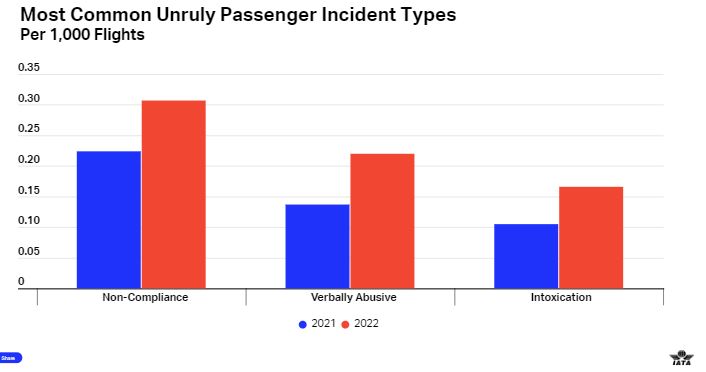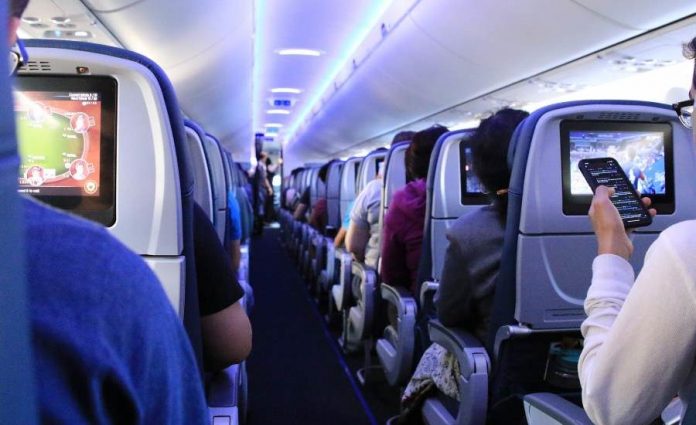The International Air Transport Association (IATA) released a new analysis showing that reported unruly passenger incidents increased in 2022 compared to 2021. IATA called for more states to take the necessary authority to prosecute passengers under Montreal Protocol 2014 (MP14).
Latest figures show that there was one unruly incident reported for every 568 flights in 2022, up from one per 835 flights in 2021. The most common categorizations of incidents in 2022 were non-compliance, verbal abuse and intoxication. Physical abuse incidents remain very rare, but these had an alarming increase of 61% over 2021, occurring once every 17,200 flights.

“The increasing trend of unruly passenger incidents is worrying. Passengers and crew are entitled to a safe and hassle-free experience on board. For that, passengers must comply with crew instructions. While our professional crews are well trained to manage unruly passenger scenarios, it is unacceptable that rules in place for everyone’s safety are disobeyed by a small but persistent minority of passengers. There is no excuse for not following the instructions of the crew,” said Conrad Clifford, IATA’s Deputy Director General.
Although non-compliance incidents initially fell after the mask mandates were removed on most flights, the frequency began to rise again throughout 2022 and ended the year some 37% up on 2021. The most common examples of non-compliance were:
- Smoking of cigarettes, e-cigarettes, vapes and puff devices in the cabin or lavatories
- Failure to fasten seatbelts when instructed
- Exceeding the carry-on baggage allowance or failing to store baggage when required
- Consumption of own alcohol on board
The aviation body has suggested a two-pillar strategy be put in place for the needed zero-tolerance approach to unruly behavior. Through regulation, governments should ensure they have the necessary legal authority to prosecute unruly passengers, regardless of their state of origin and to have a range of enforcement measures that reflect the severity of the incident. The second strategy is to prevent incidents through collaboration with industry partners on the ground (such as airports, bars and restaurants and duty-free shops), including for example awareness campaigns on the consequences of unruly behavior. Additionally, training crew to de-escalate incidents when they occur should also be a priority.













